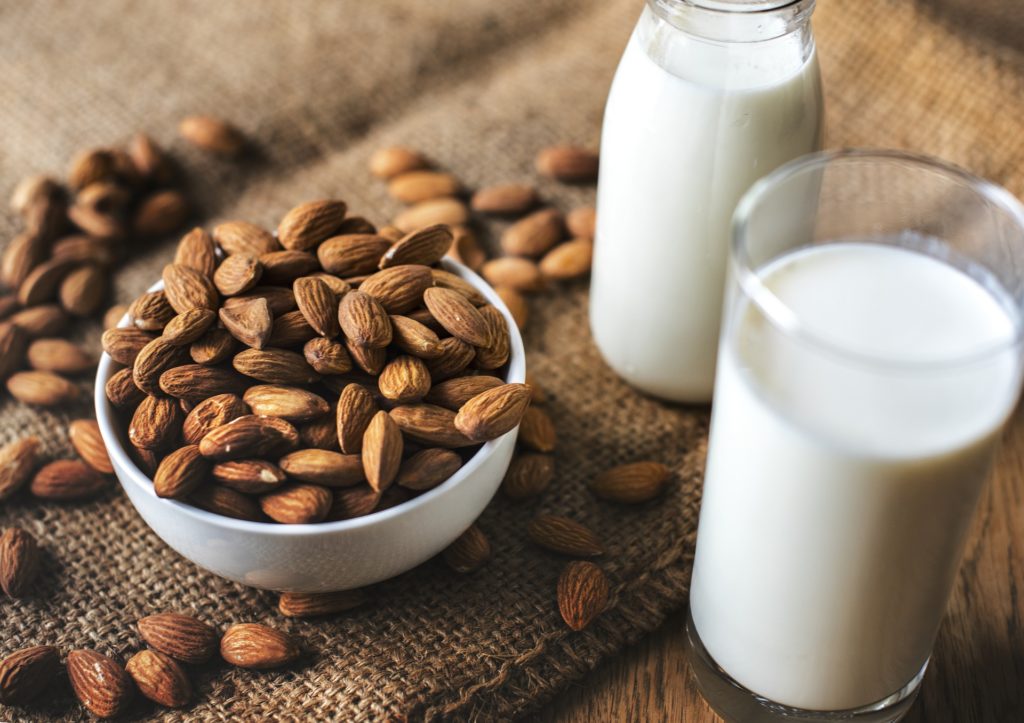
Milk is one of the most popular and versatile drinks around the world. It’s can be consumed directly as a beverage, poured on cereals, mixed with coffee and tea, used as an ingredient in cooking and baking, and so much more. However, a large chunk of the population can’t or opt not to drink milk due to health issues like allergies or simply because of personal lifestyle preferences.
Luckily, there are now various non-dairy milk substitutes that you can drink and use for preparing beverages and dishes. Among the most popular options are all-natural milked nuts and grains, which are almost as widely available as dairy milk. These kinds of milk are usually free from carrageenan, dairy, gluten, and soy, so they can be consumed by almost everyone.
With all that being said, here are some of the best non-dairy milk products that you ought to give a try.
Almond Milk
Almond milk is one of the most popular plant-based types of milk available in the market. It has a smooth, creamy texture that’s a bit lighter compared to cow’s milk, while its flavor profile is mildly sweet and nutty. Many recipes that call for milk, such as smoothies, desserts, and baked goods, can be prepared using almond milk without any drastic change in texture and taste. This is especially true if you use unsweetened almond milk.
In addition to its mild flavor, almond milk is also packed with nutrients like vitamin E, calcium, and thiamin or vitamin B1. Almond milk is also low in phosphorus and a moderate amount of potassium, so those with chronic kidney disease can safely consume this beverage in moderation. All of these health benefits come with a calorie count of only 30 to 50 per 240 ml serving.
Cashew Milk
Baristas and coffee lovers will enjoy substituting their creamer with cashew milk due to its rich, smooth texture and subtle sweetness and nuttiness. It also foams beautifully, which makes it ideal for fancy latte art. What’s great about cashew milk is that it’s extremely low in calories. One cup of unsweetened cashew milk only has about 25 calories. Cashew milk is also low in carbohydrates and sugar, making it ideal for diabetics and people who need to monitor their carbohydrate intake.
Nutrition-wise, cashew milk contains various minerals including selenium, manganese, iron, zinc, copper, and phosphorus. The latter two are particularly important in tissue formation and repair. In addition, phosphorus is also essential to promote teeth and bone health. Meanwhile, zinc is critical for a healthy immune system and iron is essential in the formation of red blood cells and vitamin C absorption.
Hazelnut Milk
Hazelnut milk may not be as popular as soy or almond milk, but it definitely deserves more attention. For one, it has a very pleasant flavor that is suited for drinking as is or for making sweet treats. It is also very nutritious, containing high amounts of vitamins A, B, and E. Vitamin A is essential for eye, bone, and skin health, while vitamin E is a powerful antioxidant that helps slow down the effects of free radicals. Meanwhile, vitamin B plays an essential role in keeping the immune and nervous systems in good shape. Hazelnut milk is also a good source of vitamin B9 or folate. This nutrient is important in the formation of genetic material and the development of new cells, which is why pregnant women are advised to take folate-rich foods and folate supplements during the early months of pregnancy.
Hazelnut milk also contains the amino acid L-arginine. Apart from helping with protein production, L-arginine is also essential in arterial health. The human body also uses L-arginine to produce nitric oxide, a compound that helps relax the blood vessels. This results in better blood flow and circulation.
Oat Milk
The first and foremost benefit of oat milk is its high dietary fiber content, making it the healthiest choice for your digestive system. Oat milk is also rich in healthy carbohydrates, which means you will feel full for a longer period and also have a steady supply of energy. This is especially beneficial for those who want to lose weight. Another important nutrient that you can get from oat milk is beta glucan, a kind of sugar that helps lower cholesterol and maintain a good balance of gut-friendly bacteria in the stomach and intestines.
Oat milk has a thinner consistency compared to dairy and nut-based milk, and has a slightly sweet, “grainy” taste. If you like drinking the leftover milk from your cereals, then you will certainly love oat milk.
Brown Rice Milk
Out of all the non-dairy milk alternatives, brown rice milk is the most hypoallergenic. It also has a bevy of nutrients that you won’t expect, like selenium and manganese. Selenium helps with better blood circulation and fighting inflammation, while manganese is essential in maintaining bone and respiratory health. These minerals also possess antioxidative properties, which helps in fighting the effects of free radicals.
Rice milk is, obviously, high in carbohydrates. However, just like oat milk, these carbohydrates are the complex or “good” carbohydrates that make you feel full and provide you with a low-sugar energy source throughout the day. When it comes to texture and flavor, rice milk has the thinnest consistency of all plant-based milks and also has the mildest hint of sweetness.
So, are you ready to make the switch and give non-dairy milks a try? Just remember that no matter which one you choose, you still have to eat a balanced diet to completely reap their full health benefits.


